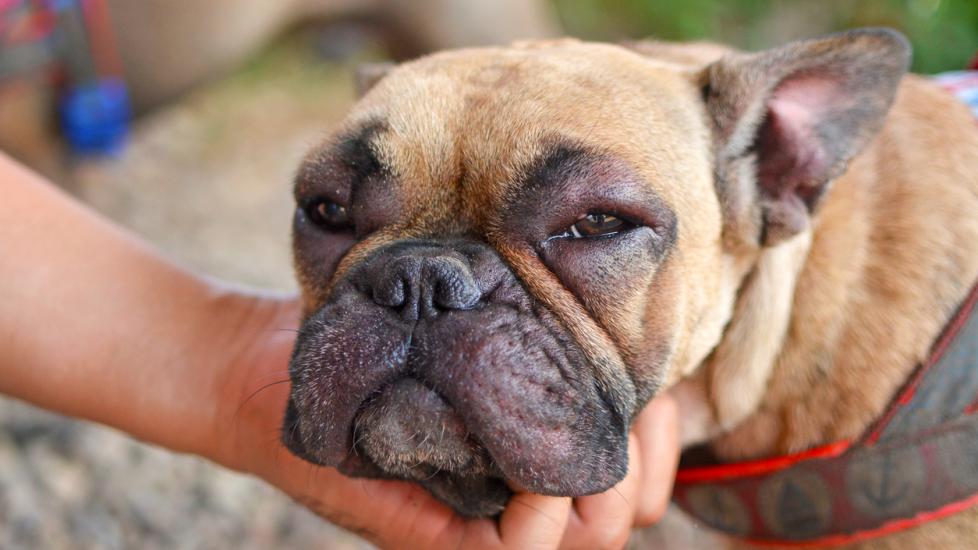As pet owners, we often find ourselves concerned about the well-being of our furry companions. One particularly concerning issue is when our dogs exhibit signs of facial swelling. A swollen face in a dog can be indicative of various underlying conditions, ranging from minor allergies to more serious health issues that require immediate veterinary attention. Understanding why your dog’s face may swell and recognizing the symptoms are crucial steps towards providing appropriate care for your beloved pet.
Allergies: Dogs are just as susceptible to allergies as humans, with environmental allergens such as pollen, dust mites, or certain chemicals being common triggers. These allergies can manifest through skin irritation, including swelling around the eyes, lips, and sometimes the entire face. Symptoms may worsen during seasonal changes or after exposure to specific substances.
Infections: Bacterial infections, dental problems, or even bites can lead to inflammation and subsequent swelling in the mouth area, which might spread to the cheeks and other parts of the face. Your dog may also experience pain, bad breath, drooling, or difficulty eating if an infection is present.
Dental Issues: Dental diseases like periodontal disease can cause gum inflammation and tooth decay, leading to abscesses that could potentially spread into the surrounding tissues, resulting in facial swelling. Regular check-ups by a veterinarian include dental examinations, where necessary treatments can be performed to maintain oral hygiene.
Autoimmune Disorders: Certain autoimmune disorders, such as lupus or immune-mediated hemolytic anemia (IMHA), can affect multiple organs, including the skin and blood vessels. When these systems malfunction, it can result in vasculitis—inflammation of the blood vessels—which can lead to localized swelling anywhere on the body, including the face.
Poisoning: Ingestion of toxic substances can cause rapid onset facial swelling due to an allergic reaction or direct tissue damage. Common household items like chocolate, xylitol sweeteners, human medications, and some plants can be dangerous for pets. If you suspect poisoning, seek emergency veterinary treatment immediately.
Skin Diseases: Conditions like dermatitis, eczema, or mange can trigger severe itching and scratching, which may result in secondary bacterial infections and subsequent facial swelling.
When faced with a situation where your dog has a swollen face, it’s important to remain calm but act promptly. Monitor your dog’s behavior closely; any sign of distress warrants a visit to the vet. During examination, the doctor will likely perform a thorough physical assessment, taking note of all visible symptoms. They may also request diagnostic tests, such as blood work, urinalysis, X-rays, or ultrasound scans, depending on their suspicions. Treatment plans vary widely based on the root cause identified. It could involve allergy medication, antibiotics for infections, dental cleanings/extractions, immunosuppressive drugs for autoimmune disorders, or supportive care following decontamination in cases of suspected poison ingestion.
Prevention plays a significant role in keeping our pets healthy. Regular grooming sessions can help identify early signs of skin irritation while routine dental cleanings can prevent many oral health issues before they escalate. Providing a safe environment free from potential toxins is essential, along with monitoring your dog’s diet and avoiding foods known to cause reactions. Keeping up-to-date vaccinations and regular visits to the veterinarian ensure prompt detection and management of any emerging health concerns.
In conclusion, a swollen face in a dog should never be ignored. It serves as a signal that something is amiss within your pet’s body, requiring swift action and professional intervention. By staying vigilant and working alongside your veterinarian, you can provide your four-legged friend with the best possible quality of life, ensuring they stay happy and healthy throughout their years by your side.
